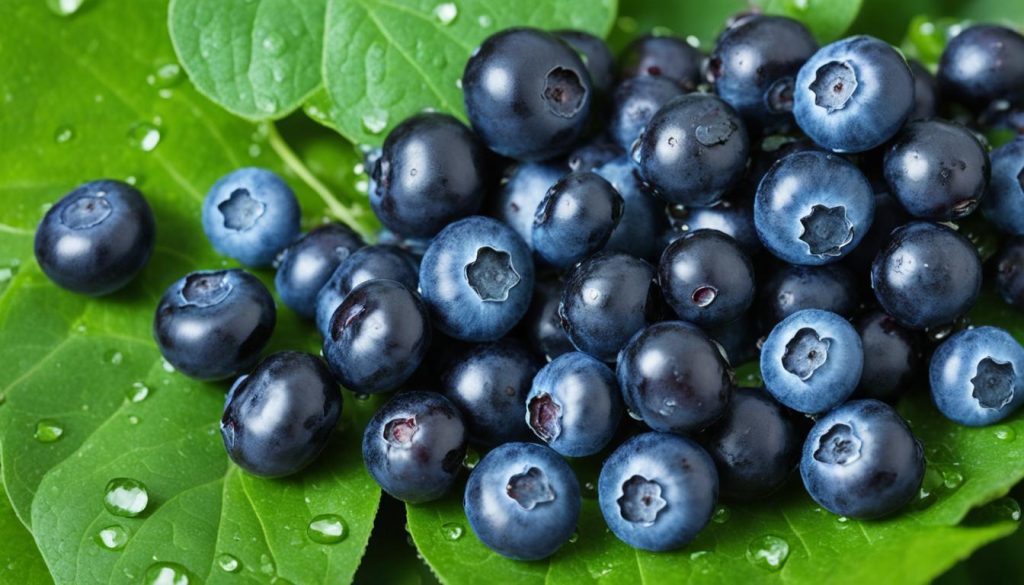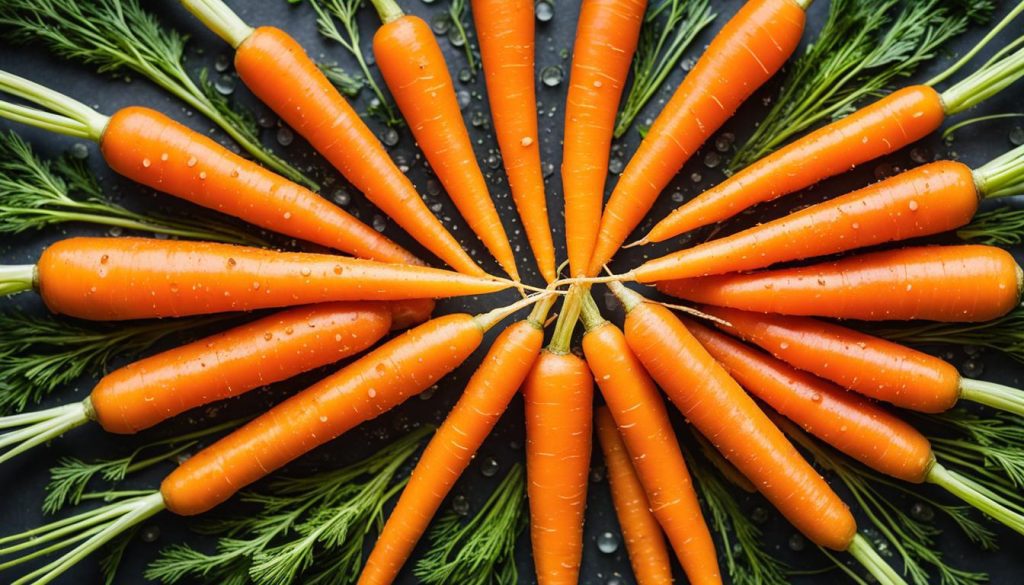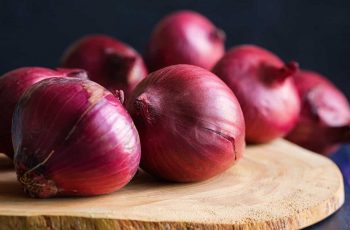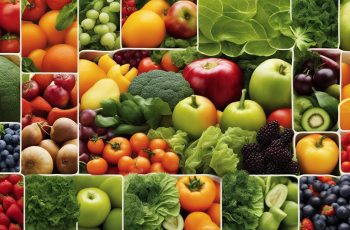When it comes to cancer prevention, a healthy diet plays a crucial role. By incorporating specific foods into your meals, you can naturally enhance your body’s defense against cancer. So, what are these anti cancer foods that you need to eat? These anti cancer foods are packed with essential nutrients, antioxidants, and cancer-fighting properties that can help lower your risk of developing this deadly disease.
In this article, I will introduce you to some of the top anti cancer foods that you should start incorporating into your daily diet. These superfoods are not only delicious but also offer a wide range of health benefits. From apples and berries to cruciferous vegetables and fatty fish, these foods are rich in cancer-fighting nutrients that can have a positive impact on your overall well-being.
Anti Cancer Foods That You Need to Eat
- Consuming a balanced diet rich in anti cancer foods is vital for cancer prevention.
- Apples contain polyphenols that can inhibit the growth of breast cancer cells.
- Berries are nutrient-rich superfoods with antioxidant properties that can modify the immune system and inhibit tumor formation.
- Cruciferous vegetables like broccoli, cauliflower, and kale are packed with cancer-fighting nutrients such as sulforaphane.
- Carrots, with their high beta-carotene content, may reduce the risk of colorectal cancer.
Apples: A Powerhouse Fruit for Cancer Prevention
When it comes to cancer prevention, apples are one of the most powerful fruits you can include in your diet. Not only are they delicious, but they also contain a variety of beneficial compounds that have been linked to cancer-fighting properties.
One of the key compounds found in apples is polyphenols. These are natural plant chemicals that have been extensively studied for their potential health benefits, including their ability to inhibit cancer growth. In fact, research has shown that polyphenols in apples, such as apple phloretin, can significantly inhibit the growth of breast cancer cells while leaving healthy cells unharmed.
But how do these polyphenols in apples work? It turns out that they target a protein called glucose transporter 2 (GLUT2), which is involved in the advanced-stage growth of certain types of cancer cells. By inhibiting GLUT2, apple polyphenols can effectively slow down or even halt the growth of breast cancer cells, making apples a powerful ally in the fight against cancer.
So, why not incorporate more apples into your diet? Not only are they a delicious and convenient snack, but they also offer numerous health benefits, including their cancer-fighting properties. From supporting breast cancer prevention to inhibiting cell growth, apples are a true powerhouse fruit when it comes to cancer prevention.
Berries: Nutrient-Rich Superfoods with Antioxidant Power
Berries are not only delicious but also packed with essential nutrients that make them a valuable addition to a cancer-fighting diet. These colorful fruits are rich in vitamins, minerals, and dietary fiber, providing numerous health benefits.
One of the standout features of berries is their high antioxidant content. Antioxidants play a crucial role in protecting cells from damage caused by free radicals, which can contribute to the development of cancer. By neutralizing these harmful molecules, antioxidants help reduce the risk of cancer and support overall health.
When it comes to berries that have shown promising cancer-fighting properties, two specific varieties stand out: bilberries and lingonberries.
Bilberries
Bilberries are small, dark blue berries that are similar in appearance to blueberries. They are loaded with antioxidants, including anthocyanins, which give them their vibrant color. Research suggests that bilberries may inhibit tumor formation and cancer growth, particularly in digestive tract cancers.

Lingonberries
Lingonberries are small, red berries that are native to Northern Europe. Like bilberries, they are rich in antioxidants and have been found to have cancer-fighting properties. Studies have shown that lingonberries can inhibit tumor formation and modify the immune system, potentially delaying cancer development and supporting cancer immune therapies.
Adding a variety of berries to your diet can provide you with a range of cancer-fighting nutrients and antioxidants. Whether you enjoy them fresh, frozen, or in the form of jams, smoothies, or desserts, berries are a delicious and nutritious way to support your overall health and reduce your risk of cancer.
Cruciferous Vegetables: Packed with Cancer-Fighting Nutrients
When it comes to cancer prevention, incorporating cruciferous vegetables into your diet is a smart choice. Vegetables like broccoli, cauliflower, and kale are not only delicious but also packed with essential nutrients that can help in the fight against cancer.
Cruciferous vegetables are rich in vitamin C, which is known for its antioxidant properties. This powerful vitamin helps protect cells from damage caused by free radicals, which can contribute to the development of cancer. Additionally, vitamin C plays a role in collagen production, supporting the health of your skin, blood vessels, and connective tissues.
Vitamin K is another key nutrient found in cruciferous vegetables. This vitamin is essential for blood clotting and may also play a role in bone health. Studies have shown that vitamin K may help reduce the risk of developing certain types of cancer, including lung, liver, and prostate cancer.
Manganese, a trace mineral found in cruciferous vegetables, plays a crucial role in various bodily functions, including metabolism and bone development. It also acts as an antioxidant, protecting cells from damage and helping to reduce the risk of cancer.
One of the standout compounds in cruciferous vegetables is sulforaphane. This plant compound has been extensively studied for its potent anticancer properties. Research has shown that sulforaphane can inhibit cancer cell growth and induce cell death in various types of cancer, such as colon and breast cancer.
By incorporating 3-5 servings of cruciferous vegetables into your weekly diet, you can enjoy their numerous health benefits and potentially reduce your risk of cancer. Whether you steam, roast, or stir-fry them, cruciferous vegetables are a versatile and flavorful addition to any meal.
Health Benefits of Cruciferous Vegetables
Cruciferous vegetables provide an array of health benefits, including:
- Rich source of vitamin C, an antioxidant that protects against cell damage
- Good source of vitamin K, which may help reduce the risk of certain cancers
- Contains manganese, a mineral that supports metabolism and bone health
- Contains sulforaphane, a compound with potent anticancer properties
Adding cruciferous vegetables to your diet is a simple and delicious way to support your overall health and reduce your risk of cancer. So go ahead and enjoy that hearty serving of broccoli, cauliflower, or kale!
Carrots: A Colorful Root Vegetable with Cancer-Protective Benefits
Carrots are not just delicious and crunchy; they are also packed with essential nutrients that contribute to overall health and well-being. This humble root vegetable is a rich source of vital vitamins and minerals, including vitamin K and vitamin A. In fact, a single medium-sized carrot contains more than double the daily recommended intake of vitamin A, which supports healthy vision, growth, and immune function. So next time you reach for a snack, consider munching on some carrots to give your body a nutrient boost.
One of the key components of carrots is their high amounts of beta-carotene, a pigment that gives them their vibrant orange color. Beta-carotene is not only responsible for the eye-catching appearance of carrots, but it also acts as a powerful antioxidant in the body. Antioxidants help to combat the damaging effects of free radicals, unstable molecules that can contribute to chronic diseases and aging. By including carrots in your diet, you can increase your intake of antioxidants and support your body’s defense against harmful oxidative stress.
Carrots have also gained attention in the field of cancer prevention. Research suggests that incorporating raw carrots into your diet may reduce the risk of colorectal cancer by as much as 17%. The high fiber content of carrots, along with their essential nutrients, contributes to their potential anticancer properties. Additionally, the beta-carotene found in carrots has been associated with a lower risk of other cancers, such as lung and prostate cancer.
Ways to Enjoy Carrots:
- Add grated carrots to your salads for a burst of color and crunch.
- Roast carrots with a drizzle of olive oil and your favorite spices for a flavorful side dish.
- Dip baby carrots in hummus or a healthy yogurt dip for a satisfying snack.
- Blend carrots into smoothies for added nutrients and a subtly sweet flavor.
Incorporating carrots into your diet is a simple and delicious way to support your overall health and potentially reduce the risk of certain cancers. Whether enjoyed raw, cooked, or blended into your favorite recipes, these colorful root vegetables offer a range of essential nutrients and antioxidant power. So why not make carrots a regular part of your meal plan and enjoy their cancer-protective benefits?

Fatty Fish: A Source of Omega-3 Fatty Acids for Cancer Prevention
Fatty fish, such as salmon, mackerel, and anchovies, offer numerous health benefits, including being packed with essential nutrients. These fish are rich in B vitamins, potassium, and omega-3 fatty acids, which are known for their potential protective effect against certain types of cancer.
Omega-3 fatty acids, found abundantly in fatty fish, have been studied for their role in cancer prevention. Research suggests that these fatty acids may have a protective effect against breast cancer, particularly in Asian patients. In addition, consuming fatty fish has been associated with a lower risk of developing colorectal cancer.
While the exact mechanisms behind these protective effects are not yet fully understood, it is believed that the omega-3 fatty acids in fish may help reduce inflammation, promote healthy cell growth, and inhibit tumor formation.
It’s important to note that more research is still needed to fully understand the relationship between fish consumption and cancer risk. However, incorporating fatty fish into a balanced diet can be a valuable step towards reducing the risk of cancer.
To reap the benefits of fatty fish, aim to include them in your meals at least twice a week. Whether grilled, baked, or pan-seared, there are numerous delicious ways to enjoy these nutrient-rich fish varieties.
Benefits of Fatty Fish for Cancer Prevention:
- Rich in B vitamins, potassium, and omega-3 fatty acids
- Potential protective effect against breast cancer in Asian patients
- Lower risk of developing colorectal cancer
- May reduce inflammation and inhibit tumor formation
- Delicious and versatile addition to a balanced diet
Conclusion
Eating a healthy and balanced diet is crucial for cancer prevention. While no single food can completely prevent cancer, incorporating a variety of nutrient-rich foods into your daily meals can help reduce your risk. Foods such as apples, berries, cruciferous vegetables, carrots, fatty fish, walnuts, legumes, grapes, whole grains, dark chocolate, and olive oil are known for their cancer-fighting properties and should be included as part of a well-rounded diet.
It is important to note that these foods should be consumed in combination with other healthy lifestyle choices. Maintaining a regular exercise routine, avoiding smoking and excessive alcohol consumption, and managing stress levels are equally important for overall well-being and cancer prevention.
If you are considering making significant changes to your diet or starting any supplement regimen, it is always advisable to consult with a healthcare professional. They can provide personalized guidance and ensure that your dietary choices align with your specific health needs and goals.
FAQ
What are the top anti cancer foods that I should be eating?
Some of the top anti cancer foods include apples, berries, cruciferous vegetables, carrots, fatty fish, walnuts, legumes, grapes, whole grains, dark chocolate, and olive oil. These foods contain nutrients and compounds that have been shown to have cancer-fighting properties.
How do apples help prevent cancer?
Apples contain polyphenols, including a compound called phloretin, which has promising anticancer properties. Research suggests that phloretin can inhibit the growth of breast cancer cells without affecting healthy cells. It works by inhibiting a protein called glucose transporter 2 (GLUT2), which plays a role in advanced-stage cell growth in certain types of cancer.
What makes berries beneficial for cancer prevention?
Berries are rich in vitamins, minerals, and dietary fiber, making them a valuable addition to a cancer-fighting diet. Research suggests that berries, such as bilberries and lingonberries, may inhibit tumor formation and cancer growth in the digestive tract. Moreover, berries have been found to modify the immune system, potentially helping to delay cancer development and aid cancer immune therapies.
What nutrients in cruciferous vegetables make them effective in preventing cancer?
Cruciferous vegetables like broccoli, cauliflower, and kale are rich in beneficial nutrients, including vitamin C, vitamin K, and manganese. They also contain sulforaphane, a plant compound with potent anticancer properties. Studies have shown that sulforaphane can significantly inhibit cancer cell growth and stimulate cell death in various types of cancer, including colon and breast cancer.
How do carrots contribute to cancer prevention?
Carrots are a nutritious root vegetable that contains essential nutrients, such as vitamin K, vitamin A, and antioxidants. They are also high in beta-carotene, which gives them their distinct orange color. Research suggests that consuming raw carrots may reduce the risk of colorectal cancer by 17%. Carrots may also offer protection against other types of cancer, such as lung and prostate cancer.
How can fatty fish help in preventing cancer?
Fatty fish, like salmon, mackerel, and anchovies, are packed with essential nutrients, including B vitamins, potassium, and omega-3 fatty acids. Research suggests that omega-3 fatty acids from fish can have a protective effect against breast cancer in Asian patients. They may also lower the risk of developing colorectal cancer. However, more research is needed to fully understand the relationship between fish consumption and cancer risk.
Can consuming these foods alone prevent cancer?
While no single food can prevent cancer, incorporating foods like apples, berries, cruciferous vegetables, carrots, fatty fish, walnuts, legumes, grapes, whole grains, dark chocolate, and olive oil into your diet can help reduce your risk. These foods should be part of a balanced diet that includes a variety of nutrient-rich foods to maximize their potential health benefits.
Should I consult a healthcare professional before making dietary changes?
Yes, it’s always a good idea to consult with a healthcare professional before making any significant dietary changes or starting any supplement regimen. They can provide personalized advice based on your individual health needs and help ensure that your dietary choices align with your overall health goals.




